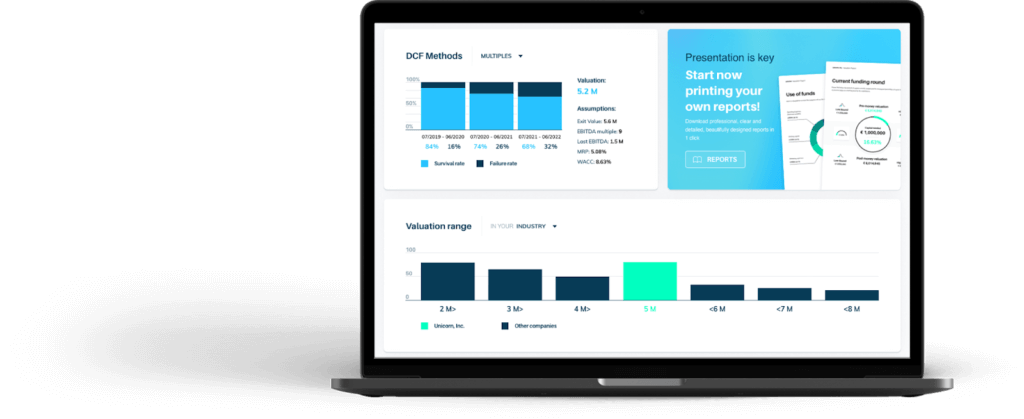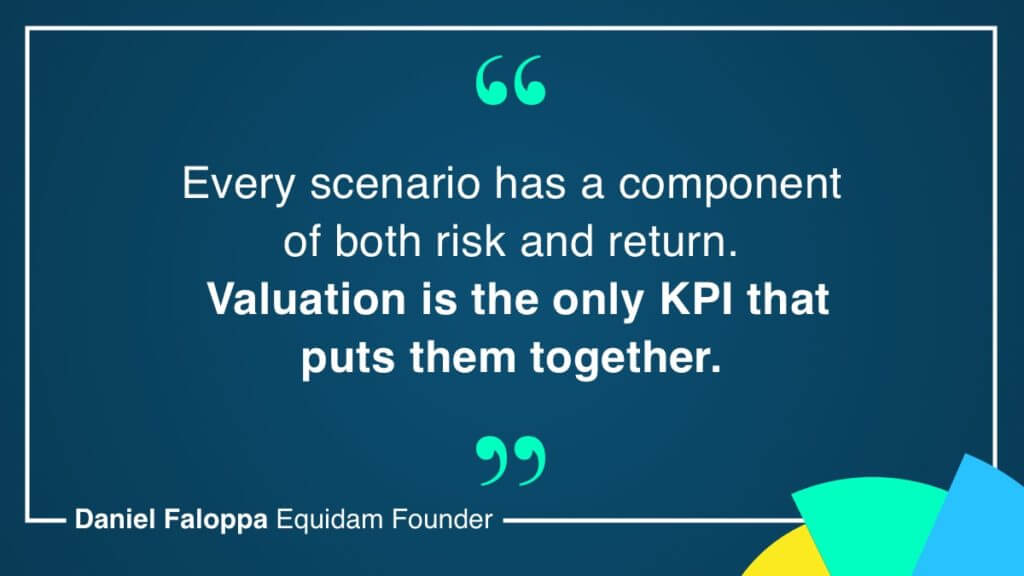“One of the things that I’ve been quite keen on internally and externally is that the valuation of our company has not been a focus for us. It’s not a goal we’re aspiring to achieve.” – Ham Serunjogi, CEO of ChipperCash, Africa’s latest tech startup unicorn.
I agree with Ham, but I also think that valuation is the only KPI that matters in any startup. So which one is it? Well, it is both.
Practically speaking, the valuation of your startup at each round has important implications for you and for the future of your company. However, the path to achieving the best valuation for your company is not focus on it. It’s the same for bodyweight: it measures something, but the goal is being healthy, and you don’t get healthier by staring a scale all day.
So why is valuation important at each round, and what are the consequences of getting it “wrong”?
-
Loose the deal over wildly different expectations
The greatest worry of walking into an investor meeting with an inaccurate valuation is breaking the deal before it even begins. As entrepreneurs, we are, by selection bias, overconfident (that is a big reason we start companies). This often creates inflated valuations of what we do, which can scare investors away. Additionally, the fact that the most publicized rounds and companies are the best ones does not help.
Aside from using Equidam, you should always check that your valuation is not hugely different from similar companies at a similar stage. The difficult part of this is finding them, but that is for another article.
-
Closing the round at a too high a valuation
First world problem you say? Not really. Sometimes you’ll find investors that are as hyped as you are about the company, or they’ll irrationally overbid, or they’ll just make a mistake. Bottom line, you’ll close the round with a very high valuation. What’s the problem you say?
First, valuations come with expectations. Investors, especially VCs, want you to move at a pace that justifies their investment. If they invest at a $20m valuation, they expect the next round to be between $60m and $100m which puts you under pressure of delivering enough milestones to be able to raise at that price. If you still have to figure out parts of PMF (Product market fit), if you were hoping to hire faster and maintain culture, if your hiring of sales reps is slower than forecasted.. you catch my drift; you are under pressure.
Secondly, the next investors are going to be forced to invest at a high valuation as well, to keep the success story of the company going. This already reduces the population of investors that are willing to invest in you, and it biases it towards high risk/high reward types.
Thirdly, it sets a high price for your stock options, raising the difficulty of your hiring.
-
Closing the round at a too low a valuation
This situation is the reverse of everything above. You are going to have low to medium expectations from investors, have more normal strike prices for options, etc. So what’s the catch? You are selling too much of the company for that investment.
You might be generous with your equity, however – especially if the company needs further funding – you might find yourself highly diluted later on. Here are some calculations to reflect on:
- How important is it for you (or the group of founders) to retain the majority of the company?
- How much equity would you like to have when the company is at scale?
- How many rounds and how capital intensive the industry is and what is normal in your industry?
So Valuation is the only KPI that matters
So besides funding rounds, should you care about valuation or not? You probably already do.
Every time you make a decision, you are trying to guess which scenario is going to have a better impact on your valuation. Every scenario has a component of both risk and return, and valuation is the only KPI that puts them together. It isn’t cost or time effective to compute a valuation for every decision, so you try to estimate the advantages of the decision and the risks.
For example, how do you choose whether to double down on your main product versus pivoting to a secondary product that is getting traction? They have different potential and different risks. Every business owner will “use their experience” but in reality they have developed a feel for the valuation of the two scenarios.
Should you worry about this?
I don’t think so, there are more and more solutions online for the valuation of the company during funding rounds and, regarding valuation for each decision, we are still very far away from that. It does help however to understand that this is the mathematical framework and, maybe for the biggest decisions with the most impact, structure the process around it!

